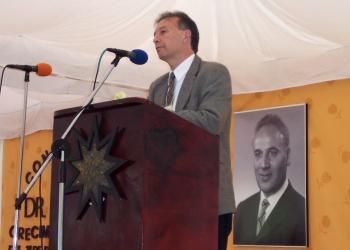Ending Corruption is Only Half the Answer
By Daniel Perell
Integrity is the foundation on which sustainable governmental policy must be built. This is a truth that has been borne out many times in real-world experience. The international community promotes this principle in various ways, from SDG 16 on peace and justice, to efforts like those of Integrity Initiatives International, to organizations such as Transparency International (TI) which track ways in which integrity is undermined in public policy.
TI’s recently released 2022 Corruption Perceptions Index, for instance, found that corruption levels were worsening in a rising number of countries – a situation which in turn destabilizes the international community and exacerbates conflict and deepens societal injustice.
To address corruption in lasting ways, positive alternatives must be built. The international community has done well to articulate various agreements and objectives, such as the Paris climate agreement and the SDGs. Yet these are only as strong as their foundations. How deeply rooted are the ideals these accords embody? To what degree are their technical obligations—the letter of the law—backed by the motivation and shared commitment to enact and defend its spirit? Building these foundations of integrity is crucial and something that can be advanced in tangible and practical terms.
In the mid-2000s, the World Health Organization undertook a project, “Ethical Infrastructure for Good Governance in the Public Pharmaceutical Sector,” to reduce corruption in the pharmaceutical industry. Representatives of health ministries and the pharmaceutical sector in 11 Asian countries gathered to do three things: articulate the principles they thought should guide economic transactions; identify points in the pharmaceutical chain, from production to delivery, where these principles seemed to be vulnerable or frequently undermined; and formulate remedial actions.
The initiative was notable for the amount of time that was devoted to the first of the three steps—building a common vision among key stakeholders around the ideals that should characterize the sector. If a sufficiently robust consensus was generated at the normative level, it was felt, steps two and three would proceed more easily and effectively. This conviction was borne out in practice, and a framework for good governance in the public pharmaceutical sector took shape, part of the WHO’s wider Good Governance for Medicines programme.
What this initiative made clear is that the moral and normative landscape in which a policy is to operate cannot be tacit or assumed. Only to the degree that shared values and principles are identified explicitly and reinforced intentionally, throughout a system, can the intended aims be accomplished. As the WHO noted in a 2008 assessment of its Framework for Good Governance in the Public Pharmaceutical Sector:
“Many proposed procedures and policies are implicitly designed to prevent unethical practices and corruption, but in most cases the moral and ethical underpinnings of these procedures are not made explicit. To prevent and combat corruption effectively, these technical guidelines need to operate within an explicit framework of moral values and ethical principles that encourage ethical practices.”
Commitment to truth, service to the common good, trusteeship, and moral leadership were key ethical principles that the WHO identified as central in the public pharmaceutical sector. Other processes might prioritize other principles. The point is not what ideals are chosen but the act of choosing them, collectively and explicitly—and then devising concrete steps to put them into practice.
The multilateral system is in a profound stage of reflection, resulting from both the possibilities outlined in the Our Common Agenda report and the growing list of challenges facing the international order. The future humanity envisions for itself will be a topic of significant attention over the next two years, with the 2024 Summit of the Future, along with its various preparatory processes. Integrity will be central to the success of these processes, as bribery, theft, capture, and the numerous other forms of corruption are not only repugnant on their own terms, but also hamstring the ability to build the trust and collaboration necessary to undertake effective action on any global challenge.
Strengthening the foundations upon which our policies rely—qualities such as rectitude of conduct, strength and commitment in times of difficulty, resistance to fleeting temptations and self-interest—will therefore be crucial in multilateral processes becoming increasingly fit for purpose. And experience suggests that as we do so, on larger and larger scales, the gap between intention and implementation—identified by many as one of the central challenges of the present age—will narrow significantly.
Daniel Perell is a Representative of the Bahá’í International Community to the United Nations
